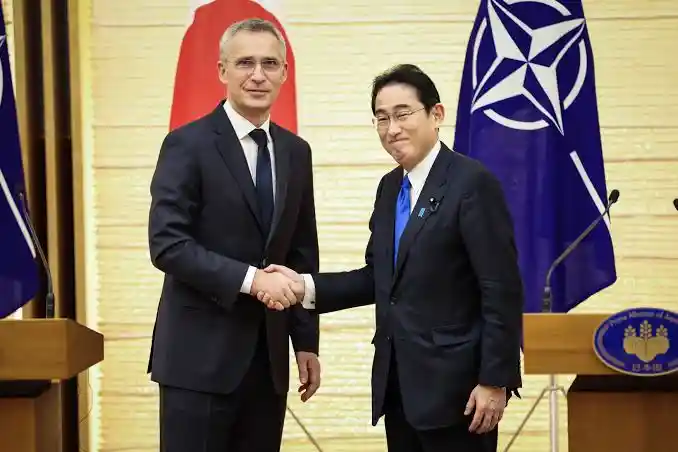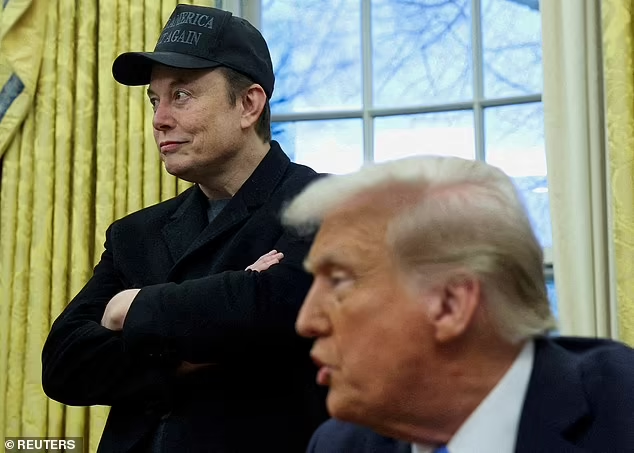Transatlantic military alliance, NATO and Japan have pledged to strengthen ties, saying Russia’s invasion of Ukraine and its growing military cooperation with China had created the most tense security environment since World War Two.
According to NATO Secretary General Jens Stoltenberg and Japanese Prime Minister Fumio Kishida who met on Tuesday, January 31 in Tokyo, a win for Putin in Ukraine will encourage authoritarians all over the world.
‘The Indo-Pacific faces growing challenges from China’s coercive behavior to provocations by North Korea. And in Europe, Russia continues to wage its brutal war of aggression against Ukraine.
‘This war is not just a European crisis, but a challenge to the world order,’ Stoltenberg said in a joint statement with Kishida on Tuesday, adding that he and Kishida agree that ‘transatlantic and Indo-Pacific security is deeply interconnected.’
‘If President Putin wins in Ukraine, this would send a message that authoritarian regimes can achieve their goals through brute force. This is dangerous. Beijing is watching closely and learning lessons that may influence its future decisions,’ said Stoltenberg.

During a visit to Japan’s Iruma Air Base, Stoltenberg said that ‘the war in Ukraine matters for all of us, and therefore we’re also very grateful for the support that Japan is providing, also using the planes and the cargo capabilities.’
Japan has provided nonlethal aid to Ukraine in the form of drones, bulletproof vests, helmets, tents and medical supplies but has not delivered weapons due to defense guidelines that effectively ban weapons exports.
Stoltenberg told reporters a Russian victory in Ukraine would embolden China at a time when it is building up its military, ‘bullying its neighbours and threatening Taiwan. What is happening in Europe today could happen in East Asia tomorrow.’
China’s foreign ministry did not immediately respond to a request for comment on Stoltenberg’s latest remarks.
Responding to similar comments Stoltenberg made during his Seoul visit, China on Monday said it was a partner to countries, not a challenge, and that it did not threaten any nation’s interests or security.
Stoltenberg who just left South Korea, also urged Seoul to increase its military support for Ukraine.
Kishida and South Korean President Yoon Suk Yeol became the first leaders from their countries to attend a NATO summit last year, joining alliance leaders as observers.












